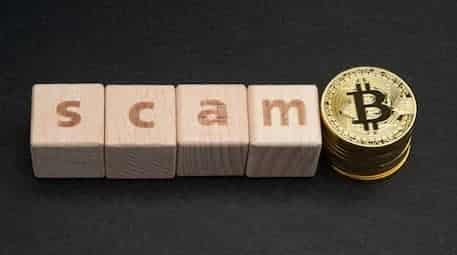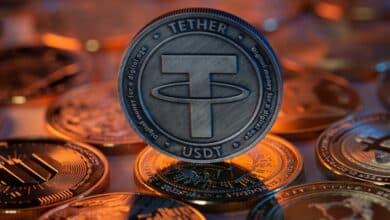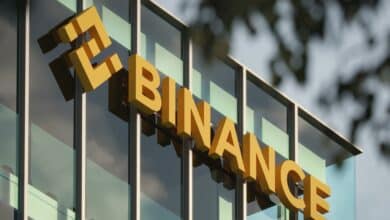SEC Charges A DeFi Project For Issuing Securities

The United States Securities and Exchange Commission (SEC) has sued two Americans and the purported companies they used to raise $31 million from selling securities through smart contracts and decentralized finance (DeFi) technology.
Based on the court filing, the SEC charges these men for misleading investors on how their “DeFi money market” project works and profits. This is the first time the SEC would charge any DeFi project for issuing securities.
The SEC’s Order On The Defi Project
The SEC’s order revealed that two Florida-based men (Gregory Keough and Derek Acree) used their fictitious Cayman Islands company, blockchain credit partners, to offer DeFi money market between February 2020 and February 2021, all of which were sold in unregistered security offerings.
Both men were alleged to have sold two kinds of digital assets.
- mTokens that pays 6.30% interest but must be bought with specific digital assets
- DMG ‘governance tokens’. Here, holders have voting rights, will receive part of the company’s profits, and earn from its token resales in the secondary market
The original plan was to package the offer and sell it as mTokens and DMG governance tokens. But would be using profits from purchasing “real world” assets to pay investors’ interests and profits.
The Cause Of The Problem
Right after launching their platform, Gregory and Derek, quickly discovered that the price volatility of the virtual assets resulted in risks that the income-generating assets couldn’t cover. Thus, they were unable to fulfill their promise to their investors.
Even though they discovered the problem, they chose not to disclose anything to the investors or make moves to resolve the issue. Instead, they misrepresented the company’s operations and claimed the DeFi money market invested in car loans which they promptly displayed.
Even though both men owned car loan companies, the DeFi money project didn’t have any shares in those companies. Instead, both men paid investors their dues with their funds and income from their car loan company. Both men even attempted to subvert the SEC’s order issuance by funding the smart contracts. Thus, tokens were paid all their dues and redeemed their mTokens.
Commenting on the development, SEC’s head of enforcement division, Gurbir S. Grewal, stated that “the foundation of our securities laws is complete honesty. It doesn’t matter the kind of tech used in offering or selling them.” He further said, “an honest disclosure will enable investors to make informed decisions, and issuers will also avoid misconstruing facts about their business to the public.”
The Charges
The SEC order discovered that the tokens and the DMG governance tokens were offered and sold as investment contracts even though the former were notes. The men’s actions were an infringement of sections 5(a) and 5(c) of the 1933 securities act.
Also, SEC found both men guilty of violating SEC’s 1934 anti-fraud provisions of sections 17(a) and 10(b) and subsection 10b-5. Curiously, Keough and Acree didn’t admit or deny SEC’s order findings. They agreed to a cease-and-desist order which involves paying back almost $13 million in payments, and each man agreed to pay $130,000 as penalties.
Tokenhell produces content exposure for over 5,000 crypto companies and you can be one of them too! Contact at info@tokenhell.com if you have any questions. Cryptocurrencies are highly volatile, conduct your own research before making any investment decisions. Some of the posts on this website are guest posts or paid posts that are not written by Tokenhell authors (namely Crypto Cable , Sponsored Articles and Press Release content) and the views expressed in these types of posts do not reflect the views of this website. Tokenhell is not responsible for the content, accuracy, quality, advertising, products or any other content or banners (ad space) posted on the site. Read full terms and conditions / disclaimer.







